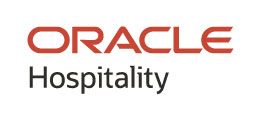Artificial Intelligence

Dive into the transformative realm of Artificial Intelligence within the hospitality industry with our in-depth exploration tailored for hotel professionals. Uncover the nuanced ways AI is reshaping guest experiences, optimizing operational efficiency, and revolutionizing personalized services. From smart room systems and chatbot concierges to data-driven decision-making tools, this comprehensive guide provides valuable insights into the strategic integration of AI technologies. Gain a profound understanding of the future landscape where AI meets hospitality, empowering hoteliers to navigate this dynamic intersection and stay ahead in delivering unparalleled guest satisfaction and operational excellence.
This Thematics is sponsored by Oracle Hospitality
Near-Term Machine Learning Use Cases for Hospitality
Using interfaces to access the multitudes of information housed within a hotel’s property management system (PMS), technology vendors have on their hands a literal treasure trove of first-party training data for machine learning applications. Any primary data extraction must nevertheless be focused around specific use cases that must be tested and verified before deploying in a live environment. Thus far, we’ve seen lots of discussion around what’s possible in the abstract for machine learning, but outside of perhaps chatbots and algorithmic rate optimization recommendations, many of the purported use cases are not practical for the here and now.
Generative AI Agents Promise to be a Boon for Hotel Operations
As of now, the common sentiment around Generative AI (genAI) and the use of large language models (LLMs) or generative pre-trained transformers (GPTs) for hospitality is centered around chatbots and their ability to answer guest inquiries and, in some cases, complete standard room reservations. While we all inherently grasp that there are applications far more advanced than these already-advanced functionalities, standing above the rest are the AI agents that can be trained to perform specific and rather complex tasks.
Data Maturation Represents the Essential Reason for Deploying Machine Learning Today
From the recent articles that Oracle Hospitality has published on both how machine learning (ML) works as well as some of its key applications, there is a single term that all hoteliers should remember when deciding how to commercialize this type of artificial intelligence (AI). This term is ‘data maturation’ and, as the name suggests, you need time to let the ML occur. You need to give the computers time to swift through the reams of training data to test variables and find the patterns that will then lead to the algorithms and models to advance business goals.
Understanding GenAI with Its Applications that Hotels can Realize in 2024
In the first post of this series, we explored the value proposition of machine learning (ML) to the hospitality industry. It was a pretty straightforward article to write because ML is already generating demonstrable value for hotels and hotel companies, and there are still substantial financial gains to be realized by the technology. Now let’s talk about generative artificial intelligence (genAI), which many believe has the potential to dramatically increase productivity across all industries, including hospitality. How much of an increase? Estimates value the potential productivity boost to the global economy at up to $8 trillion a year.
Generative AI and Neural Net Fundamentals
There are two answers to the question of how generative AI models work. Empirically, we know how they work in detail because humans designed their various neural network implementations to do exactly what they do, iterating those designs over decades to make them better and better. AI developers know exactly how the neurons are connected; they engineered each model’s training process. Yet, in practice, no one knows exactly how generative AI models do what they do—that’s the embarrassing truth.
Machine Learning Basics for Hotel and Correlation versus Causation Modeling
There are many definitions of machine learning (ML). For purposes of this explainer, ML is the scientific study of algorithms and statistical models that computer systems automatically use in real-time to effectively perform a specific objective function (such as optimizing revenue) without using explicit instructions. Instead, ML relies on patterns and inference. All this is performed using a feedback loop so that each successive iteration further increases precision of the models, which drives and improves the objective function.
Introducing Machine Learning’s Applications for Hotel Operations
So much has been written recently about how artificial intelligence (AI) in its various forms can help hotels run their businesses better by increasing guest engagement while decreasing expenses. Almost all that attention to date has focused on generative AI (genAI) and its potential to help travelers plan and book travel or to provide personalized responses to service guest or employee queries.
